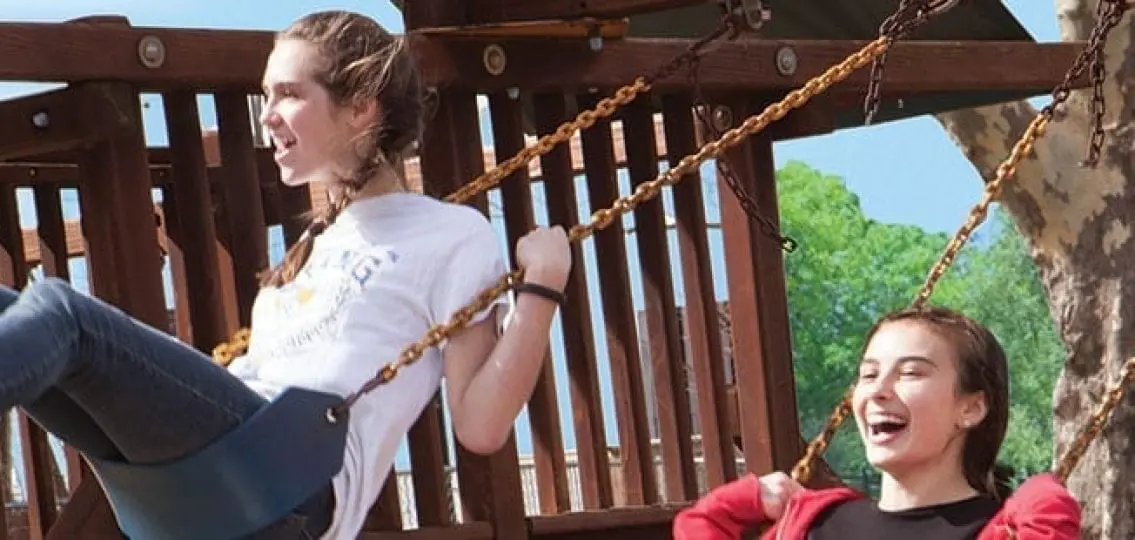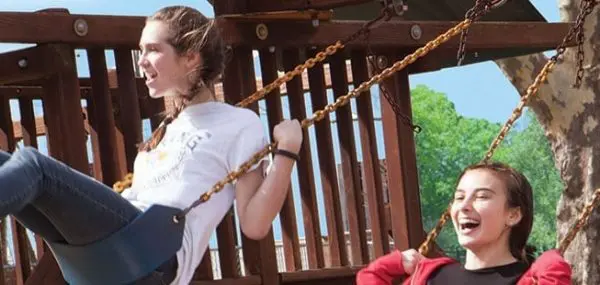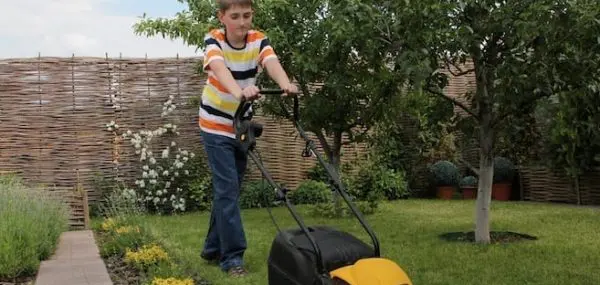“I’m sorry, but you can’t just hang around the house all summer,” we explained to our 16-year-old son, who was relishing months of computer games, late nights with friends, and sleeping in until noon. He pictured fun and games. We saw opportunities for him to learn a new skill, test out his career choices, and experience the world of work.
Luckily, with some negotiation, we set a compromise: a month of helping out with computers at Mom’s work, a week-long vacation with grandparents, and—to top off his summer—two weeks of down time with his pals. Summer accomplished.
Yes, summertime presents a real dilemma, especially for working parents who don’t have month-long vacations or hefty bank accounts for expensive summer camps. But with a little bit of input and a lot of planning—and some of our ideas for summer activities for teens—these lazy, hazy days can give your teens a chance to learn a new skill, pursue a passion, make long-lasting friends, think about the future, get creative, and enjoy some old-fashioned fun on the side.
Summer Ideas for Teens
Your tweens may be shouting, “Yay!” Your teens might be singing boisterous renditions of Alice Cooper’s “School’s Out.” But most parents will likely be thinking, “Oh no! Now what?” It may take some planning (and a bit of prodding), but it’s possible to find summer activities for teens that are fun, productive, and keep everyone happy.
1. Let Teens Make Summer Plans
“What teenagers do in the summer is much more valuable than in the winter,” says Dr. Michael Bradley, psychologist and author of Yes, Your Teen is Crazy! Loving Your Kid Without Losing Your Mind. “Summer is unstructured time,” he explains, “without the demands of school projects, sports teams, and sometimes 18-hour days.” Bradley advises parents to come up with a possible list of summer activities for teens. Put some ideas out there. “Then let your teens decide what they want to do.”
Dr. Kimberly Schonert-Reichl, professor of applied psychology at the University of British Columbia and a specialist in adolescent behavior, agrees. “We have opportunities in summer to reset the connections,” she says, “as well as revisit what our teens might be interested in.” So sit down with your teen to make a plan of what the summer might look like. “You might say something like, ‘Let’s look at our schedules and figure out some things we could do. What would make our summer fun?’” It’s okay to insist that your teens do something this summer. But value their input and work it out together.
2. Work On a Schedule (or Develop a Strategy)
Bradley suggests balancing unstructured time with some structured time “so they don’t turn into a bowl of gelatin in summer.” One way to approach it: divide the summer into thirds.
- One-third organized, productive time, where your teenager is engaged in something that has an outcome.
- One-third unstructured time “where they have holes in their schedule and have to figure out who they are and what they want to do.”
- Then the last third goes toward family vacation time. “It’s a back-and-forth process, an exchange of ideas,” Bradley says. “Mutual respect and negotiation are really important.”
And if your teen announces that his summer plan is to read books all summer while lying on the couch (as my middle son did at age 15)? Go for it if you can make it work. Bradley suggests saying something like, “Gosh, it would never have occurred to me as a teen to read all summer. I’m really impressed with that.” Plan a way to check in from time to time on his progress. In this way, “You are affirming him and his uniqueness apart from you.”
3. Plan Summer Activities for Young Teens
Tweens and younger teenagers are in a tough spot. They are not able to work—teenagers need to be a minimum of 15 to work in most states—and they tend to feel that going to the local day camp they’ve been attending since kindergarten is too babyish. “Pre-teens, 11 to 14, are in a really important transitional phase,” says Schonert-Reichl. “There is a change in cognition, empathy, and being able to think about their future. But they are also highly self-conscious and worry about what others think about them.”
So, it’s key to find summer activities for young teens that seem exciting (and mature enough) for this age group and that offer enough structure to make your family’s particular summer schedule work.
Here are some suggestions:
- Classes or camps for teens: If you can afford it, enroll in specialty camps or classes that line up with your tween’s interests (computers or art, for example) or day camps or sleep-away camps geared toward teenagers specifically. “We know that non-related supportive adults—camp counselors, youth leaders, teens with more maturity—can have a huge impact on this age group,” says Schonert-Reichl.
- Hire a college student: Many working parents seek out college students to hang out with tweens and younger teenagers during the summer. Your tween will likely view a college student as “cool,” whereas an adult sitter can make younger teenagers feel like you’re still treating them like children. Bonus: many college students have a car to shuttle your tween around town.
- Tap into your network: Grandparents and other family members can pitch in, too. “If they have grandparents or even older cousins who can provide that love, support, and a safety net, all the better,” Schonert-Reichl adds. Ask other parents about their own needs. Some parents set up a regular schedule hosting each other’s tweens during the summer.
- Work off the books: If your younger teenager wants to earn some extra cash, she could let neighbors know she’s available to help with yard work, walk dogs, or be a mother’s helper.
- Look for free activities: Many libraries and community recreation centers offer free or inexpensive summer activities for teens.
4. Encourage Older Teens to Find Summer Work
“Your job as a parent is not to raise an Ivy League freshman,” says Bradley. “It’s to raise the parent of your grandchildren.” So think about value-forming experiences when it comes to summer activities for teens. Even jobs that are terrible, like chopping onions for 10 hours, will teach them something—probably to stay in school. Trying to corral a dozen 10-year-olds waving tennis rackets amidst one thousand tennis balls can be a life lesson on interacting with kids.
“They learn all sorts of skills that they don’t learn when we take care of them,” says Bradley.
A volunteer job is another great option. “When they work in a soup kitchen, or as a volunteer in a public defender’s office, they will begin to understand that the way they grew up is not the way that most of the world grows up,” explains Bradley. It’s a lesson that keeps on giving.
Schonert-Reichl agrees. “We’ve found that when you engage teens in making their community a better place, 15 years later, they are more likely to help in their community, to volunteer, and even to vote.”
5. Don’t Forget Down Time
Everyone needs a vacation, and teens are no exception. It could even be a “staycation,” with endless re-runs of The Simpsons. And don’t fret if your teens seem to be doing nothing for some part of the summer. “Boredom research shows that it’s not such a bad thing,” says Ann Douglas, author of the upcoming Parenting Through the Storm. “You are doing your kids a favor because it stimulates creative activity. And if you allow kids to feel the discomfort of boredom, they will bounce back with creative ideas.”
Bradley couldn’t agree more. “When a kid is staring at the ceiling, that time is very productive,” he says. “Boredom is the beginning of decision-making based on terms of a teenager’s identification process: What could I do, what I feel like doing, what choices do I make here? That’s the goal of getting the wheels turning in his or her head.” And that could be the ultimate test of a very successful summer!




